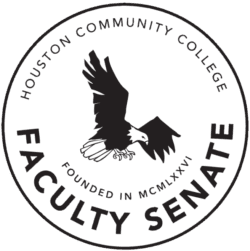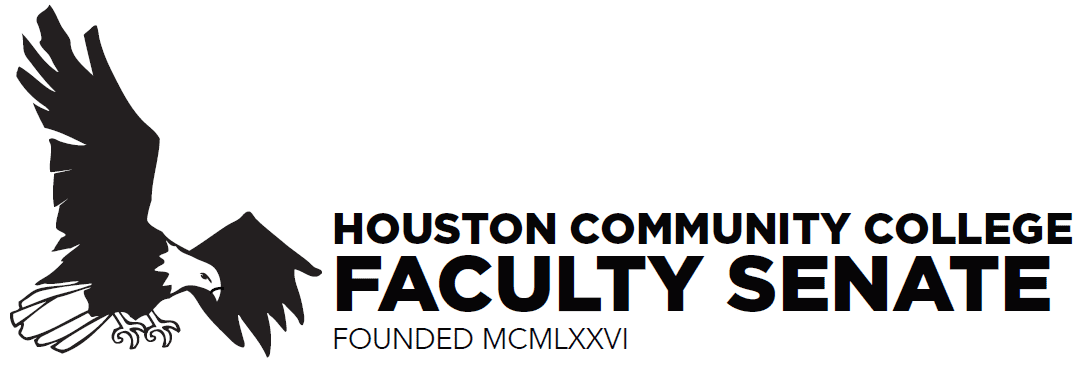(adopted March 11, 2022)
We, the Faculty of the Houston Community College System (HCCS), pronounce and establish that we have rights inherent to our positions as instructors, and that we shall exercise these rights without fear of censorship or punishment, and that these rights be secured by means of academic due process and procedural fairness, and that these rights be ascribed to full-time faculty, adjunct faculty and embedded faculty employed by HCCS, unless otherwise defined herein.
- Faculty have the right to academic freedom.
- Faculty have the right to exercise the First Amendment.
- Faculty have the right to intellectual property.
- Faculty have the right to civility.
- Faculty have the right to procedural fairness.
- Faculty have the right to dissent.
Definitions
Academic Freedom
Academic freedom is a bedrock freedom for faculty that supports the core functions of teaching, learning, and research in an academic context and the exercise of their subject matter expertise. This right includes components that pertain to each of these activities. It protects the right of faculty to teach the content they believe is most relevant for the subjects in which they are experts, in ways that they think are most appropriate, including methods of assessment, course design, and classroom management. It also protects the right of faculty to explore topics of research, commercial or artistic production, and teaching, both in the classroom and outside of it, that may be controversial, sensitive, or may impact public discussions in significant ways. (For reference see https://www.aaup.org/report/1940-statement-principles-academic-freedom-and-tenure)
First Amendment
Faculty should not be constrained from acting in the public forum as private citizens simply because they are HCC faculty. Faculty have the right to represent themselves publicly, and in doing so they have all rights guaranteed by the First Amendment, including speech, press, and association.
Intellectual Property
The ability of faculty to be creative is an integral part of their jobs. It is not unreasonable for faculty to be able to benefit from the fruits of their labors. Therefore, faculty have the right to develop, retain, and benefit from their own intellectual property, whether through the creation of teaching and learning materials, artifacts of their labor and trade specialty, academic research, or professional writing or presentations.
Civility
Faculty are trained professionals who have voluntarily chosen to practice their vocations with this college. As such, they represent a properly constituted authority (cf. Student Handbook) and have the expectation of being treated in the workplace with civility, common courtesy, and mutual respect by all concerned: students, other employees, and members of the community. (cf. HCC Policy on Non-Discrimination)
Procedural Fairness
Faculty have an expectation that all written procedures will be followed, e.g., grade appeal procedures, disciplinary procedures, and so forth. Decisions regarding employment, job duties, and discipline must follow a transparent procedure of due process, respecting HR procedures, the chain of command, and shared governance. Any new procedures involving faculty as participants should be created with the expectation that they be fair and swiftly adjudicated, particularly with regards to matters of academic freedom. No faculty should receive a change to fundamental job duties or position without some procedural due process.
Dissent
Faculty are professionals who have an obligation to respect the chain of command. But as faculty are also trained experts who are central to the mission of the institution, they are not obligated to remain silent or to refrain from offering their points of view, even when they contradict those of the Administration or Board, out of any fears of reprisal or retribution.

